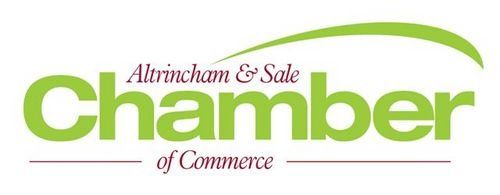News
Latest News

by Victoria Greenwood
•
04 Mar, 2021
We like to think we will always be around. Unfortunately, our inability to confront our own mortality can have a disastrous effect on those closest to us and our businesses. All businesses need to deal with succession, but farming families are particularly vulnerable to the effects of failing to deal with succession. Why is succession planning so important within farming? One of the main reasons is that children are often involved in working on the family farm and there is this unwritten understanding that one day all of this will be yours. Farming families are also notorious for not having partnership agreements in place, which again can leave the business open to potential disputes over the ownership of the business and its assets. Issues within farming One of the most common disputes that arise in farming families from a lack of succession planning is a proprietary estoppel claim – briefly put this is where: A representation, promise, assurance or other encouragement by the defendant giving rise to an expectation by the claimant that he/she would have a certain proprietary interest. There is reliance by the claimant upon that expectation. Finally, the claimant suffers a detriment in consequence of his/her reasonable reliance on the promise. When can mediation help? During the planning discussions Getting to the actual discussion about succession is often the first hurdle. Farmers are often so busy running the farm that they don’t have time to think about succession planning and for many people having this sort of discussion doesn’t come easy. Family members don’t want to rock the boat – children don’t want to disappoint their parents by admitting they don’t really fancy running the farm. Parents may feel that they are forcing their children into running the farm, but then equally children can be insensitive with their new ideas for the farm, which can often lead to disputes with their elders. Having an open and honest conversation as early as possible – and before a problem arises, is the best course of action. The children may not want to carry on the farm, but by knowing this the parents can plan for their retirement and have something to aim for. Sometimes these discussions will get out of hand. Heated debate may take place and people may get offended and upset. Mediation enables an independent third party to come in and speak with all of those involved. The mediator can: Explore the goals of each family member and what they want to achieve Facilitate conversations between family members so that they understand what others feel and want Enable the family to come up with a way forward together Where no discussions have taken place and litigation ensues Proprietary estoppel cases are fuelled with emotion and often to lead to lengthy, bitter and very expensive litigation. Whist there are practical steps you can take to avoid claims such as avoiding making promises and succession planning, this isn’t always the case. If faced with a claim for proprietary estoppel the parties should consider the use of mediation over litigation as the advantages of using mediation include: Confidentiality – farming communities are small, and these cases are ripe for local gossip and media attention. Cost – a mediation costs between £1500 - £3000 per party vs legal costs of around £100,000 if it went to trial. Speed – the mediation can be arranged within a few weeks and dealt with in one day - in comparison to the time it will take to bring the matter to trial (at least a year) and a possible 3 to 5 day hearing. The parties decide on the solution rather than a Judge making a decision (which often suits neither party).

by Victoria Greenwood
•
17 Feb, 2021
Despite popular opinion they are not something which should be only considered in later life, or at the onset of an illness but right now to ensure your wishes will be respected should you lose mental capacity, be that temporarily or indefinitely. Lasting Powers enable you, the donor, to appoint someone you know and trust to act in your best interest, when you are unable to do so. Their purpose is to promote your independence. Most attorneys will be appointed family members – children and grandchildren. Families do not always agree on things, and this will be no exception when it comes to making decisions as an appointed attorney. What can cause issues? • Underlying family tensions o The initial appointment of the attorney(s) may have exacerbated tensions between family members, with some questioning why they were only appointed as replacement attorney for example. • Lack of consensus of agreement between attorneys • Lack of agreement between attorney(s) and other family members • Lack of agreement/consultation between attorneys, family members and medical professionals • Lack of inclusion/consultation with the donor What kind of disputes can arise? • Accommodation decisions • Financial management • Property management • Care/treatment decisions • Gifts Family disputes can increase the risk to the donor as the disputes may mean that not all decisions are being made in the donor’s best interests, which can have a negative effect on the donor’s care, health and wellbeing. The Court of Protection and the Mental Capacity Act Code of Practice encourage those involved in an attorney dispute to attempt mediation. The mediator must have regard to the Mental Capacity Act 2005 (“MCA”), and one of the areas where mediation helps rebalance the power between donor and attorney(s) is that any settlement must comply with Section 4 of the MCA: “a decision made for a person who lacks capacity must be made in the best interests of that person” Mediation is ideal when people are not communicating well or not understanding each other‘s point of view. It can improve relationships and stop future disputes, so it is a good option for attorneys as it is in their interest to maintain good relationships in the future. Mediation • ensures issues are addressed in the best interests of the donor • involves the donor and takes into account their wishes and feelings • supports the donor in making decisions • enables parties to communicate effectively and understand each other’s points of view • likely cheaper than going to the Court of Protection

by Victoria Greenwood
•
01 Feb, 2021
The latest Arcadis Global Construction Disputes Report 2020 has revealed that the average time taken to resolve construction disputes in the UK has fallen by 23% to just 9.8 months (previously 12.8 months). This reduction in time doesn’t correspond to a reduction in the average value of disputes, which have remained constant. So why is the average length of dispute in the UK the lowest in the world? The report looked at how the UK deals with its construction disputes with the top 3 most common methods pf resolving a construction dispute being: 1. Adjudication 2. Party to Party negotiation 3. Arbitration So why doesn’t mediation make the top 3? Mediation has lost its place in the top 3, having been overtaken by Arbitration – most likely due to the introduction of new low-cost schemes, such as the Chartered Institute of Arbitrators’ Business Arbitration Scheme. Efforts have been made to encourage the early use of dispute resolution in the construction sector – such as the Construction Industry Council’s Model Mediation Agreement and Procedure, but this doesn’t seem to have made much of an impact. Mediation offers a lower cost and a quicker option to those involved in the construction industry, so perhaps in time and with ongoing education as to the benefits more will come to use it. Whatever the method – alternative dispute resolution is here to stay, and the construction industry success certainly serves as a shining example.

by Victoria Greenwood
•
25 Jan, 2021
1. Choose your mediator • Try and find a mediator who has experience in your type of dispute. Whilst in theory a mediator can mediate any type of dispute, if the matter is technical, we find it helps to have a mediator who understands the issues. • Experience – all of our mediators have over 10 year’s experience (some over 20!). Make sure you have a safe pair of hands with the experience to get your dispute settled. • Obtain the other side’s agreement to the mediator, be honest with your reasons and hopefully they will agree! 2. Pick a date • Mediations can be arranged at short notice (even shorter if it is a virtual mediation) • Let the mediator know the days you can’t do and they will liaise with the other party and provide you with a shortlist of suitable dates. 3. Sign the agreement to mediate • You will receive a draft copy of the agreement. It contains everyone’s details and sets out the legalities of the mediation – such as its confidential nature. • Make sure you sign this in advance of the mediation so that everything can proceed on the day – we like to use DocuSign. 4. Brief the mediator • You will be asked to prepare a Position Statement. As you may have guessed this sets out your position and how you ideally see the matter being resolved. • You will also need to provide the mediator with a bundle of documents that support your case (if appropriate). Sometimes the bundle will be agreed with the other side. 5. Exchange statements • Parties have the option of exchanging their position statement with the other side before the mediation. This helps the parties know exactly where the other is coming from. • This is entirely optional, and it is common for the position statements to remain confidential to the mediator – this is useful where you may feel your case is not that strong. 6. The Mediation • The parties will be in separate room – virtual or actual, the choice is yours. • The mediator will shuttle between the parties, discussing their case, its strength and weaknesses and finding common ground upon which the parties can build a settlement. • Any settlement will be in writing and signed by the parties.

by Victoria Greenwood
•
14 Jan, 2021
FICTION ❌ Mediations are mandatory ❌ What you say in a mediation can be used against you at a later date (for example in Court) ❌ You have to stay in the mediation until you settle ❌ The mediator can impose a solution on you (like a Judge) ❌ Mediation replaces litigation ❌ Mediation is more expensive than litigation FACT ✅ The parties are in control of the outcome – they decide what terms they can live with ✅ The mediator is there to help the parties have a conversation – they may reality test your position, but they will never impose a solution on you ✅ Mediation is entirely voluntary ✅ You can leave the mediation at any time – but we’d prefer it if you stayed! ✅ Mediation is significantly cheaper than court proceedings – ✅ Mediation exists alongside litigation. If the mediation isn’t successful you are free to litigate.

by Victoria Greenwood
•
30 Nov, 2020
1. Cost – There are no travel costs for the parties or the mediator. You don’t need to hire a venue or arrange for refreshments. The mediator’s fees will also be reduced as you don’t need to pay for travel time. 2. Speed – Remote mediation removes the need for a venue and taking time away from the office. You don’t have to arrange child/pet care and consequently the mediation can be arranged more quickly than the usual face to face scenario 3. Attendees – By removing travel time those at higher levels (CEOs etc) who wouldn’t normally have the time to commit to a mediation can no do so. They can take part but know that at a click of a button can be available to others. 4. Less stress – Mediations can be incredibly stressful. Matters are often hotly contested and being with the other side in a joint session can be an anxious time for the parties. By moving things online the parties are taken out of that situation and often feel more at ease in their own surroundings. 5. Flexibility – There is always a lot of ‘waiting’ in a mediation. Remote mediations allow the parties to work on other matters whilst waiting for the mediator. This is especially useful for those who wouldn’t normally have the time to take part – or even those who have to fit in childcare/home schooling. The parties can even leave the mediation and re-join at a later time, if not needed. Top tips you don’t think of for online mediation • Make sure your phone and laptop are fully charged (if using) • Keep your charger handy – we found our iPad charger and iPhone 10 charger are super quick! • Let everyone know what you will be doing all day! • Plan – lunch, other people’s lunches and dinner (the last thing you will feel like doing is cooking at the end of the day!). • Know how to mute and turn off your video on zoom (we’ve all heard the conversations we shouldn’t have!)

by Victoria Greenwood
•
08 Nov, 2020
Mediation has long been associated with family law and commercial disputes – but now we are seeing it being used more and more in personal injury and clinical negligence cases. Claimants now have an alternative to the long drawn out, often incredibly stressful, court proceedings. Mediation offers the Claimants the opportunity to reach a settlement, which they can live with. It is a very healing process – the Claimant is in control of what they accept, not a Judge, and not their legal representative. Unlike in a Joint Settlement Meeting (JSM) the parties are included at every step – it isn’t just left to the solicitors or barristers to do the negations on their client’s behalf. In mediation the process is the client’s. Mediation also offers creativity – the settlement doesn’t need to be purely financial. Instead, mediation gives the Defendant the opportunity to apologise for what happened – something which could never be ordered by a Judge. A court room can appear a cold and daunting place for a Claimant, by using mediation in personal injury and clinical negligence cases you can avoid the need for such formality. The entire process can be moulded to suit the Claimant, to make them as comfortable as possible. There are also the added benefits of cost, speed and flexibility. By removing the need for a full trial, the Claimant will reduce their legal costs significantly. They can decide which mediator appeals to them, and what price range they are willing to pay for their services. Personal Injury mediation also radically reduces the time to settlement. The Court system is already overloaded, and the pandemic has only served to worsen the situation. A mediation can be fixed up within a matter of weeks, with the case being resolved (all going well!) within 8 hours. There will always be resistance to new methods, and the JSM remains popular, but with all the benefits mediation has to offer surely it can only be set to increase?

by Mark Whittell
•
12 Oct, 2020
As one of the few insolvency lawyers who is a mediator I still remain surprised that insolvency practitioners do not make more use of mediation. While I appreciate that many lawyers still feel to suggest mediation is a sign of weakness in their case, that is quite simply wrong, it is just common sense. In any event experienced litigators know there are ways of engineering a mediation without showing weakness. Mediation provides a quick and commercial settlement and takes away the risks of any litigation. What more could an IP want? Below I deal with some frequently asked questions to enable the practitioner to have a better understanding of the mediation process before going on to look at how it can be used in insolvency situations. What is mediation? It is a confidential and flexible process conducted by a neutral person who helps parties towards a negotiated agreement of a dispute during which the parties retain the ultimate control of the decision to settle and the terms of the resolution. Practically mediation is an excellent method for settling any dispute quickly, commercially and without the cost, time and risk associated with the litigation process. However, to maximise the benefit of the process it is not a case of simply sitting back and allowing the process to envelop you, but having a "game plan" What is the role of the mediator? He is there to facilitate a settlement of your case. He will not adjudicate on the merits or provide a judgment, but will work towards an agreed settlement. A mediator starts the process by discovering the facts, before moving to reality test the merits of their case with the parties. He will look at the costs that have been incurred and will be incurred going to trial and the best case and worst case scenarios. Only then will he start to explore ideas for settling the case before moving to record the terms of settlement. What are the advantages of mediation? For the insolvency practitioner I believe there are three major advantages, namely: Speed Cost Risk A mediation could be organised in a day, but realistically can be organised within seven days if the parties want a speedy resolution to a dispute. The process normally takes a day. This is in comparison to the court process which can take from 12 to 18 months, if all goes well, and a court hearing that could turn into weeks. Cost comparisons will vary depending on the size nature of the case. In terms of the mediation, the mediator will charge in an average case something in the region of £1,250 plus VAT per party. If the mediation lasts for over 8 hours the mediator will charge a further £150 per hour per party. Contrast this to the hourly charge out rate that you pay to your solicitor and the length of the proceedings and the trial where for a case with a 3 day hearing you will be billed in excess of £50,000. There will be significant cost savings. Mediation puts you in control of the risk of losing and the adverse costs order. There are two sides to every story. One party is going to lose. The Judge is going to have to form a view of the parties and how they perform in the witness box. He is going to have to find for one party and the losing party always feels that he got it wrong. You assess the risks of your own case. You find out the strengths of the oppositions case. Then you can take a view of the "risks of litigation" and negotiate a settlement around that risk and the cost of proceeding to trial. What are the disadvantages of mediation? None. The downside is that you will have had to pay for the costs of the day of the mediation. However, if you have used the mediation process to its full extent, you will have had the opportunity to reassess the merits of your own case with an independent third-party, while at the same time you will have found out the strengths and weaknesses of your opponents case. This inevitably leads to narrowing the issues as you go forward and saving of time and cost. What is the role of mediation in insolvency proceedings? Mediation should be used by the office holder to maximise realisations for the creditors at the least risk All reading this article will be aware of the costs of litigation and the risks associated with it. Even if the case is successful at trial there are still the problems of enforcement, often against an individual who has given personal guarantees to others to support the failed company. Mediation provides the opportunity to settle the case. The mediator will ensure that the defendant's very best offer is available to you. Having prompted the mediator throughout the day to probe and discover the strengths and weaknesses of the defendant's case, while having listened to the mediator's own analysis of your case, which will have included an analysis of the cost and percentage chances of success, you will have to hand all the information you need to perform a cost risk benefit analysis. Having undertaken mediation you are in a position to accept the defendant's offer, which you can justify to the creditors, or decide to risk the cost and time of proceeding to trial in the full knowledge of all the relevant facts. What type of insolvency case is suitable? The simple answer is that any dispute or conflict which arises within the case. Any litigation involving the company or the bankrupt prior to appointment can be resolved through mediation. Below I list some examples where I have also seen mediation used to resolve claims involving the office holder: Transactions at an undervalue Transactions defrauding creditors Preferences Misfeasance claims Recovery of directors loans Claims by the wife relating to the ownership of the matrimonial home Retention of title claims Conclusion Mediation is a quick and cost effective method of resolving disputes. In the recovery of any asset or litigation it should be at the forefront of the IP's mind to maximise realisations of the assets for the creditors

by Mark Whittell
•
05 Oct, 2020
Yes the file we all dread – the boundary dispute The client is acting on a point of principle The client will be irrational and not act commercially The costs will be totally disproportionate The reality is one party will have to move for them to be happy No matter how well you conduct yourself the Court is going to be highly critical of the fact you have not settled and the costs you have incurred And it will hang around in your filing cabinet for ages as it will not have any priority It all leads to a worried and dissatisfied client and a frustrated solicitor The Problem You will be litigating usually over a small strip/piece of land which will have a negligible value but because of the complexity of the arguments over title and adverse possession it will creep into multi-track and after the neighbours and the previous owners have all had their say you will be looking at a 3 day trial. Court proceedings will be expensive and protracted. It will probably give the client 2 years of sleepless nights and it would not be unusual for the parties to spend £50,000, plus another £10,000 on VAT which they cannot recover. Then there is the nightmare of an issue based costs order because quite often in the “tit for tat” exchange that follows into the pleadings the parties win some and lose some, and the reality is even if they have achieved a pyrrhic victory they end up paying most of their own costs. After all the cost and anguish your client has to suffer the stresses and strains of a 3 day trial, the ordeal of being cross examined by a barrister for an afternoon, all to find the Judge takes a strict legal interpretation and makes a ruling no-one wants! The Solution It is not rocket science but a mediation can provide a quick and cheap practical solution in a relatively short period. The mediator can ask relevant questions to bring home the reality of the situation which do not enter a judge’s mind such as: Do you use this strip of land? Will it add to the value of your house? Will it detract from the value of your house? Will a prospective purchaser be bothered? Is it really important to you? Is there something they could offer you in exchange? He can go into the real reason behind the dispute and find a solution One party can look into their living room The unsightly mess they have to look out over The neighbour blocked his planning application A perceived land grab The overhanging gutter leaking The need to fit in an access road The nuisance of lighting a fire as soon as you put out the washing A judge can only determine the legal answer as to where the boundary lies and it might not suit either party. The mediator, on the other hand, can think laterally and, for example, suggest: Relocating the boundary to suit the parties real needs A land swap A right of way over a different and less contentious area of land Moving the boundary by a matter of yards to accommodate the real reason for the litigation Making one party erect a fence to give the other side the privacy they require If the parties are reluctant to settle rest assured: the mediator will stress the costs they are going to have to pay you, there will be a full and frank discussion about the risks of litigation the mediator will bluntly ask them how they will pay the £100,000 bill if they lose at trial. both parties will be asked if this small piece of land is really worth it And although you will have done the same, when a neutral third party asks the same question in a mediation it will have more effect. Tips First, make the offer of mediation at an early stage and preferably before proceedings have been issued. I find the costs can often become a block to any settlement in a situation where they are already in a stubborn mood. Both parties become entrenched because of needing to win to recover their costs. Most parties have not got the savings to fund an action at a cost of say £50,000 and run the risk of paying another £40,000 if they lose. Then they don’t know how to get out of the mess they have created. Secondly, conduct at least part of the mediation on site. The mediator can understand the physical proximity of the issues, and so can the solicitors, rather than looking at a scale plan. It enables the mediator to point out exactly what a small area is in dispute and how any changes to the boundary or area would affect the parties as he moots potential solutions. Also, consider our mediation package tailored to reflect the length of time these very personal issues will take to resolve but also the value of the land in dispute. Mark Whittell Mediator North West Mediation Solutions www.nwmediationsolutions.co.uk enquiries@nwmediationsolutions.co.uk This article first appeared in the 30 November 2018 edition of New Law Journal and is reproduced with their permission.

by Victoria Greenwood
•
08 Sept, 2020
The typical farming proprietary estoppel case usually goes something like this: One of the children takes a keen interest in farming, and the parent (and owner of the farm) promises the child that if they work on the farm for a minimal (or non-existent) salary then upon the parents’ death they will inherit the farm. The child works on the farm and gives up any opportunities to work or study elsewhere. Upon the death of the parents, the child discovers they have gone back on their promise and left the farm or shared it with a sibling. So how does proprietary estoppel work? Basically, it effectively allows the court to step in and stop the parent from going back on their promise – where to not do so would be unconscionable as the child has relied on their promise to their detriment. The requirements of a claim To establish proprietary estoppel, you have to satisfy 3 key elements (as set out in Davies v Davies [2016] EWCA Civ 463): A representation, promise, assurance or other encouragement by the defendant giving rise to an expectation by the claimant that he/she would have a certain proprietary interest. A reliance by the claimant upon that expectation. A detriment to the claimant in consequence of his/her reasonable reliance on the promise. Once these 3 elements have been satisfied, the Court will consider what remedy to award. It has a wide discretion and each case is dependent on the facts. The Courts options can include: monetary compensation, removal of the legal owner’s right to possess the land, and the grant of a lease. Case example: Guest v Guest In Guest v Guest the Court of Appeal dismissed a proprietary estoppel claim involving a family farm. Briefly summarised: Tump Farm had been in the Guest family for three generations and was owned by David Guest, the father. Andrew Guest, the eldest of two son and the claimant in the original case, had worked on the farm for over 30 years for low pay. Andrew had always been led to believe by his parents that he would inherit a substantial interest in the farm. In 1981 Andrew’s parents drew up wills ensuring that he and his brother would inherit Tump Farm in equal shares. Whilst Andrew’s inheritance expectation did change over the years – from inheriting the farm entirely, to inheriting it along with his brother, what did not change was his anticipation and expectation that he would inherit sufficient to continue with the farming business. Sadly by 2014 relations between Andrew and his parents has deteriorated and he stopped working at the farm. In 2018 Andrew’s parents made new wills excluding Andrew from any entitlement. The Court found that until 2014 the parents had led Andrew to believe that he would inherit the farming business. There were clear assurances on which Andrew had relied to his significant financial detriment. The court felt that although Andrew’s expectations of inheritance had changed there was still ‘sufficient clarity’. The Court when awarding the appropriate remedy awarded a lump sum payment amounting to 50% of the market value of the farming business and 40% of the value of Tump Farm. The Court acknowledged that this would inevitably lead to Tump Farm being sold but felt that due to the total relationship breakdown a clean break was required. How to avoid claims As demonstrated in Guest v Guest, proprietary estoppel cases are fuelled with emotion and often to lead to lengthy, bitter and very expensive litigation. There are practical steps you can take to avoid claims: Avoid making promises or expectations that you can’t keep Plan – land owners should consider succession planning (with the subsequent tax savings) at an early stage with everyone fully aware of each other’s’ wishes. Make a clear will – again discuss the contents with your family so that nothing comes as a surprise Mediation Whilst the above steps would help guard against any claim for proprietary estoppel, not everyone has the time or the knowledge of proprietary estoppel to put appropriate measures in place. If faced with a claim for proprietary estoppel claim, the parties should consider the use of mediation over litigation as the advantages of using mediation include: Confidentiality – farming communities are small, and these cases are ripe for local gossip and media attention. Cost – a mediation costs between £1500 - £3000 per party vs legal costs of c £!00,000 if it went to trial. Speed – the mediation can be arranged within a few weeks and dealt with in one day - in comparison to the time it will take to bring the matter to trial (at least a year) and a possible 3 to 5 day hearing. The parties decide on the solution rather than a Judge making a decision (which often suits neither party). Mediation allows the parties to have conversations and to get to the root cause of these disputes (these cases invariably involve a family breakdown and with mediation there is the chance that old wounds can be healed). The one disadvantage of mediation is the cost of the day, if it does not settle, but from my experience even if the case does not settle the parties are able to narrow the issues and as a consequence they are able to make significant savings of time and cost during the litigation.
Want more information?

© 2024
North West Mediation Solutions Limited
Latest news

by Victoria Greenwood
•
04 Mar, 2021
We like to think we will always be around. Unfortunately, our inability to confront our own mortality can have a disastrous effect on those closest to us and our businesses. All businesses need to deal with succession, but farming families are particularly vulnerable to the effects of failing to deal with succession. Why is succession planning so important within farming? One of the main reasons is that children are often involved in working on the family farm and there is this unwritten understanding that one day all of this will be yours. Farming families are also notorious for not having partnership agreements in place, which again can leave the business open to potential disputes over the ownership of the business and its assets. Issues within farming One of the most common disputes that arise in farming families from a lack of succession planning is a proprietary estoppel claim – briefly put this is where: A representation, promise, assurance or other encouragement by the defendant giving rise to an expectation by the claimant that he/she would have a certain proprietary interest. There is reliance by the claimant upon that expectation. Finally, the claimant suffers a detriment in consequence of his/her reasonable reliance on the promise. When can mediation help? During the planning discussions Getting to the actual discussion about succession is often the first hurdle. Farmers are often so busy running the farm that they don’t have time to think about succession planning and for many people having this sort of discussion doesn’t come easy. Family members don’t want to rock the boat – children don’t want to disappoint their parents by admitting they don’t really fancy running the farm. Parents may feel that they are forcing their children into running the farm, but then equally children can be insensitive with their new ideas for the farm, which can often lead to disputes with their elders. Having an open and honest conversation as early as possible – and before a problem arises, is the best course of action. The children may not want to carry on the farm, but by knowing this the parents can plan for their retirement and have something to aim for. Sometimes these discussions will get out of hand. Heated debate may take place and people may get offended and upset. Mediation enables an independent third party to come in and speak with all of those involved. The mediator can: Explore the goals of each family member and what they want to achieve Facilitate conversations between family members so that they understand what others feel and want Enable the family to come up with a way forward together Where no discussions have taken place and litigation ensues Proprietary estoppel cases are fuelled with emotion and often to lead to lengthy, bitter and very expensive litigation. Whist there are practical steps you can take to avoid claims such as avoiding making promises and succession planning, this isn’t always the case. If faced with a claim for proprietary estoppel the parties should consider the use of mediation over litigation as the advantages of using mediation include: Confidentiality – farming communities are small, and these cases are ripe for local gossip and media attention. Cost – a mediation costs between £1500 - £3000 per party vs legal costs of around £100,000 if it went to trial. Speed – the mediation can be arranged within a few weeks and dealt with in one day - in comparison to the time it will take to bring the matter to trial (at least a year) and a possible 3 to 5 day hearing. The parties decide on the solution rather than a Judge making a decision (which often suits neither party).

by Victoria Greenwood
•
17 Feb, 2021
Despite popular opinion they are not something which should be only considered in later life, or at the onset of an illness but right now to ensure your wishes will be respected should you lose mental capacity, be that temporarily or indefinitely. Lasting Powers enable you, the donor, to appoint someone you know and trust to act in your best interest, when you are unable to do so. Their purpose is to promote your independence. Most attorneys will be appointed family members – children and grandchildren. Families do not always agree on things, and this will be no exception when it comes to making decisions as an appointed attorney. What can cause issues? • Underlying family tensions o The initial appointment of the attorney(s) may have exacerbated tensions between family members, with some questioning why they were only appointed as replacement attorney for example. • Lack of consensus of agreement between attorneys • Lack of agreement between attorney(s) and other family members • Lack of agreement/consultation between attorneys, family members and medical professionals • Lack of inclusion/consultation with the donor What kind of disputes can arise? • Accommodation decisions • Financial management • Property management • Care/treatment decisions • Gifts Family disputes can increase the risk to the donor as the disputes may mean that not all decisions are being made in the donor’s best interests, which can have a negative effect on the donor’s care, health and wellbeing. The Court of Protection and the Mental Capacity Act Code of Practice encourage those involved in an attorney dispute to attempt mediation. The mediator must have regard to the Mental Capacity Act 2005 (“MCA”), and one of the areas where mediation helps rebalance the power between donor and attorney(s) is that any settlement must comply with Section 4 of the MCA: “a decision made for a person who lacks capacity must be made in the best interests of that person” Mediation is ideal when people are not communicating well or not understanding each other‘s point of view. It can improve relationships and stop future disputes, so it is a good option for attorneys as it is in their interest to maintain good relationships in the future. Mediation • ensures issues are addressed in the best interests of the donor • involves the donor and takes into account their wishes and feelings • supports the donor in making decisions • enables parties to communicate effectively and understand each other’s points of view • likely cheaper than going to the Court of Protection






